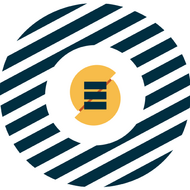Social Problems
(View Complete Item Description)Short Description: Social Problems: Continuity and Change is a realistic and motivating look at the many issues that are facing our society today. As this book’s subtitle, Continuity and Change, implies, social problems are persistent, but they have also improved in the past and can be improved in the present and future, provided that our nation has the wisdom and will to address them. Long Description: Introduction to Psychology is adapted from a work produced by a publisher who has requested that they and the original author not receive attribution. This adapted edition is produced by the University of Minnesota Libraries Publishing through the eLearning Support Initiative. Social Problems: Continuity and Change is a realistic but motivating look at the many issues that are facing our society today. As this book’s subtitle, Continuity and Change, implies, social problems are persistent, but they have also improved in the past and can be improved in the present and future, provided that our nation has the wisdom and will to address them. It is easy for students to read a social problems textbook and come away feeling frustrated by the enormity of the many social problems facing us today. Social Problems: Continuity and Change certainly does not minimize the persistence of social problems, but neither does it overlook the possibilities for change offered by social research and by the activities of everyday citizens working to make a difference. Readers the book will find many examples of how social problems have been improved and of strategies that hold great potential for solving them today and in the future. You will find several pedagogical features help to convey the “continuity and change” theme of this text and the service sociology vision in which it is grounded: Each chapter begins with a “Social Problems in the News” story related to the social problem discussed in that chapter. These stories provide an interesting starting point for the chapter’s discussion and show its relevance for real-life issues. Three types of boxes in each chapter provide examples of how social problems have been changed and can be changed. In no particular order, A first box, “Applying Social Research,” discusses how the findings from sociological and other social science research have either contributed to public policy related to the chapter’s social problem or have the potential of doing so. A second box, “Lessons from Other Nations,” discusses how another nation or nations have successfully addressed the social problem of that chapter. A third box, “People Making a Difference,” discusses efforts by individuals, non-profit organizations or social change groups, or social movements relating to the chapter’s social problem. Students will see many examples in this box of how ordinary people can indeed make a difference. A fourth box in each chapter, “Children and Our Future,” examines how the social problem discussed in that chapter particularly affects children, and it outlines the problem’s repercussions for their lives as adolescents and adults. This box reinforces for students the impact of social problems on children and the importance of addressing these problems for their well-being as well as for the nation’s well-being. Each chapter ends with a “Using What You Know” feature that presents students with a scenario involving the social problem from the chapter and that puts them in a decision-making role. This feature helps connect the chapter’s theoretical discussion with potential real-life situations. Each chapter also ends with a “What You Can Do” feature that suggests several activities, strategies, or other efforts that students might undertake to learn more about and/or to address the social problem examined in the chapter. Like other aspects of the book, this feature helps counter “doom and gloom” feelings that little can be done about social problems. Other pedagogical features in each chapter include Learning Objectives at the beginning of a major section that highlight key topics to be learned; Key Takeaways at the end of a major section that highlight important points that were discussed in the section; For Your Review questions, also at the end of a major section, that have students think critically about that section’s discussion; and a Summary that reviews the major points made in the chapter. The founders of American sociology a century or more ago in cities like Atlanta and Chicago wanted to reduce social inequality, to improve the lives of people of color, and more generally to find solutions to the most vexing social problems of their times. A former president of the Society for the Study of Social Problems, A. Javier Treviño, has used the term service sociology to characterize their vision of their new discipline. Social Problems: Continuity and Change is grounded in this vision by offering a sociological understanding of today’s social problems and of possible solutions to these problems. Word Count: 287523 (Note: This resource's metadata has been created automatically by reformatting and/or combining the information that the author initially provided as part of a bulk import process.)
Material Type: Textbook







